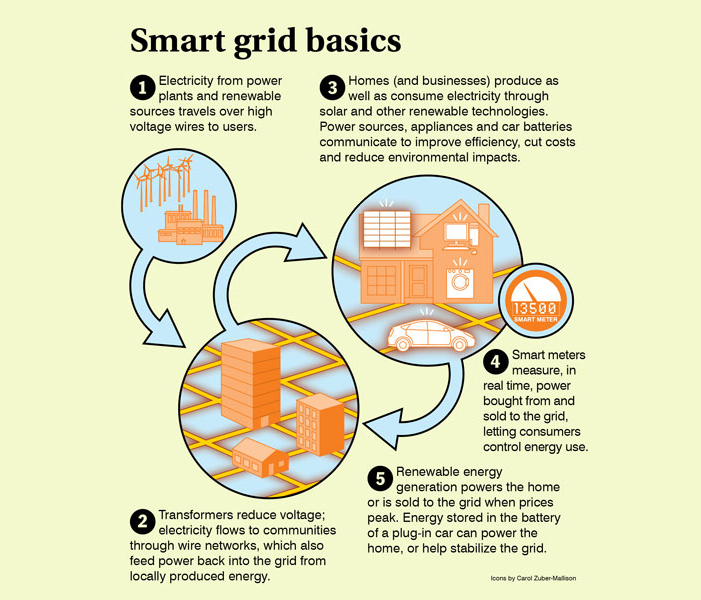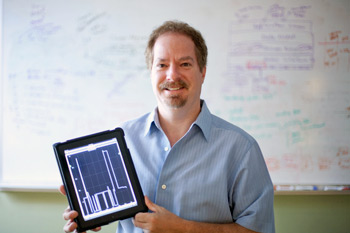So you might be asking, what is a smart grid? Truth is you probably have been using smart grid devises such as smart meters (digital meters) and smart thermostats for years and haven't known it. The idea of the smart grid is that it will reduce the amount of greenhouse gas produced from traditional methods or energy production and save the consumers money. A smart grid is a digitalized energy delivery network that transmits a two-way flow of electricity and information. Monitoring everything from the power source to specific measurements of consumer usage, including individual appliances.3 With this continuous feedback and extensive control provided by the smart grid the home should be much more efficient and ultimately use less electricity. In fact, for the savvy power user whose home produces some of its on power the grid would buy back any extra energy not being used. This would apply to homes that use solar panels or any other renewable source the homeowner produces.

Right now Austin is setting a standard on how smart grid technology can be integrated into our communities by building its own smart grid neighborhood. It's a bold step in making this a living incubator for ideas and technology that will change the industry. A goal of the collaboration between Pecan Street, Environmental Defense Fund, Austin Energy and the University of Texas is to reduce carbon emissions by 64% compared to an average Austin neighborhood.
Oppositions
Some unofficial studies
have been done which shows that the smart meters emit toxic levels
of microwave radiation due to the meters WiFi components. These components allow it to be in constant connection with the home's devices and the mesh network. Supporters say the opposite and suggest cell phones expose us to more radio frequencies than the smart meters do.
Another opposition
is that some markets never gave the public the option of
whether or not they wanted this data collecting technology in their homes.
They feel that this is an invasion of their privacy.
So there are some items that still need to be addressed but this could very well be a good thing for the world.

No comments:
Post a Comment